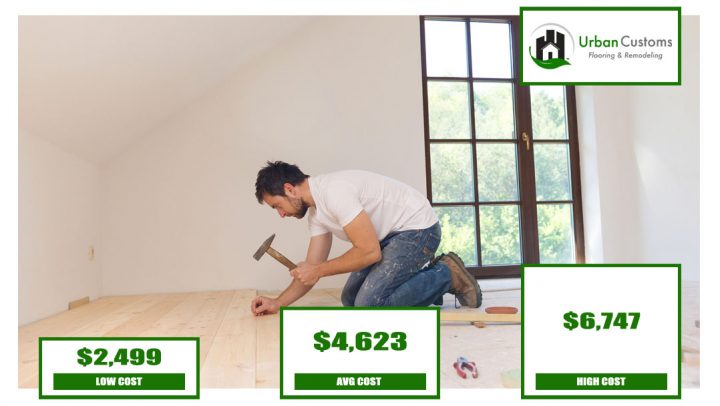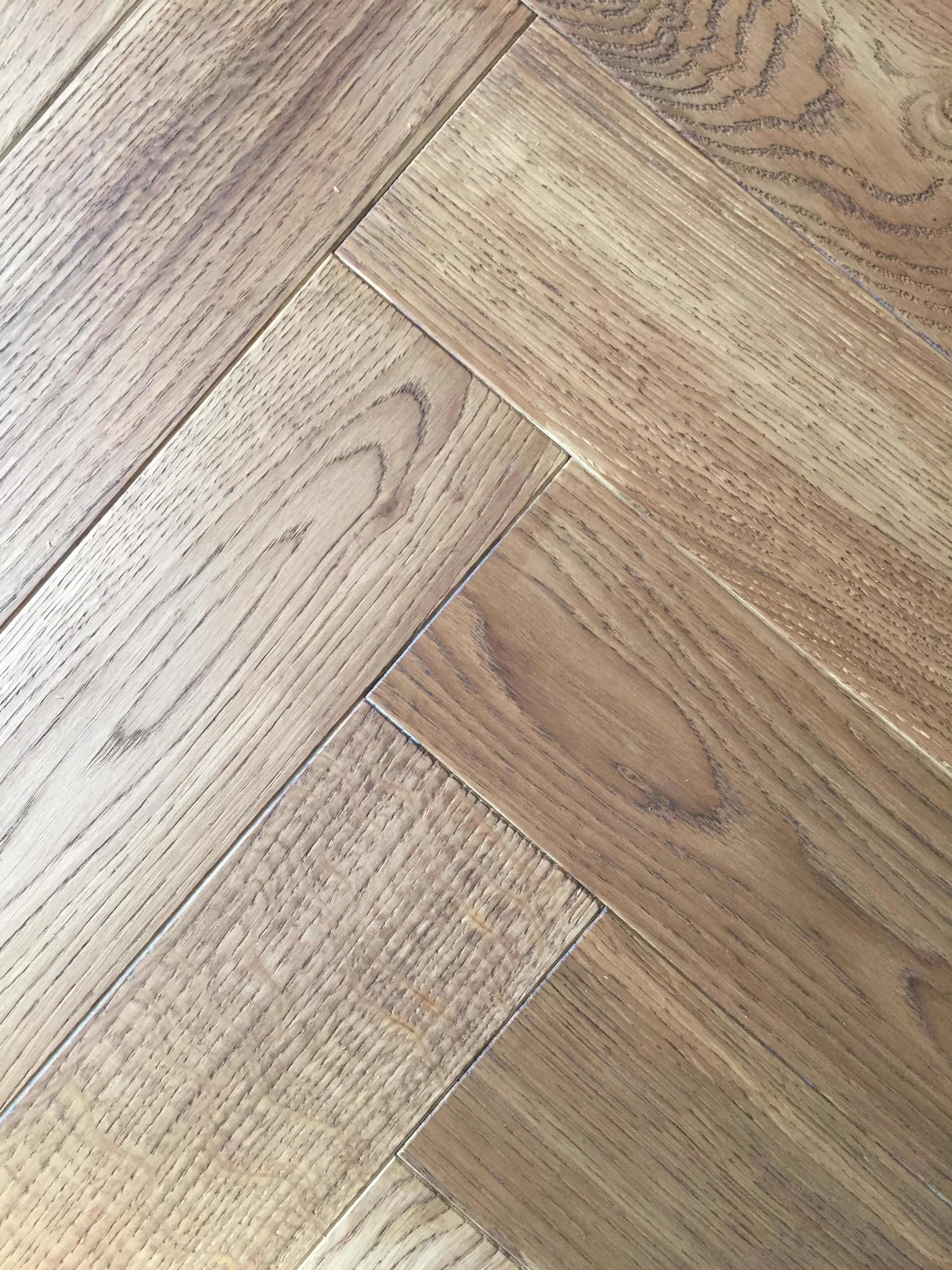Have you ever walked into a home and been instantly captivated by the warm, inviting feel of gleaming hardwood floors? The richness of color, the subtle variations in grain, the timeless elegance – it’s no wonder hardwood flooring remains a top choice for homeowners. But when you start dreaming of transforming your own space, the question inevitably arises: how much will it cost? This comprehensive guide breaks down the average cost to install engineered hardwood floors, equipping you with the knowledge to make informed decisions for your dream home.

Image: urbancustomsaz.com
Engineered hardwood floors offer a beautiful, durable, and increasingly affordable alternative to traditional solid hardwood. They are constructed with a thin layer of real wood veneer bonded to a core of plywood or high-density fiberboard, providing stability and resistance to moisture. This design makes engineered hardwood an excellent choice for basements, kitchens, and other areas susceptible to moisture variations. Understanding the factors influencing the cost of installing engineered hardwood will enable you to make choices aligned with your budget and desired aesthetic.
A Deeper Dive into Cost Factors
The cost of installing engineered hardwood floors varies considerably depending on a number of factors. Let’s break down these key influences to give you a clearer picture:
1. The Type of Engineered Hardwood:
- Wood Species: The type of wood you choose significantly impacts price. Popular choices include oak, maple, hickory, cherry, and walnut, each with its own unique character and price point. Exotic hardwoods like Brazilian cherry or teak will typically be more expensive.
- Wood Grade: Hardwood is graded based on its quality and appearance. Higher grades, featuring a greater proportion of clear wood with minimal knots and imperfections, tend to command higher prices.
- Thickness: Engineered hardwood typically comes in thicknesses ranging from 3/8″ to 1/2″. Thicker planks provide a more substantial feel and allow for multiple refinishing cycles, but they generally cost more.
- Width: Engineered hardwood planks come in varying widths. Wider planks create a more expansive look and can add visual interest, but they can also increase installation costs.
2. Installation Costs:
- Labor: Installation costs vary greatly based on the experience and location of your contractor, the size and complexity of the project, and any unique challenges, such as difficult subfloors or the need for extensive prep work. Expect to pay between $3 and $8 per square foot for labor.
- Preparation: Preparing the subfloor for installation is crucial for a successful outcome. This can involve leveling, repairing, and ensuring a smooth, solid surface. If significant repairs or modifications are required, it will add to the overall cost.
3. Additional Costs:
- Underlayment: Engineered hardwood benefits from installing an underlayment beneath it. This provides cushioning, soundproofing, and moisture resistance. The cost of underlayment varies based on the material and thickness.
- Molding and Trim: Installing moldings and trim around doorways, windows, and edges adds to the overall budget. The cost of these materials and installation depends largely on the styles and materials you choose.
- Stairs: Installing engineered hardwood on stairs involves additional complexity and often requires specialty installation techniques, increasing the cost.
- Permits: In some areas, permits might be required for certain types of flooring installations.
4. Regional Influences:
- Location: The cost of labor, materials, and permits can vary significantly by region. Labor costs tend to be higher in urban or densely populated areas.
Navigating the Price Landscape
Now that you understand the factors influencing the average cost, let’s provide you with a range:
- Basic: For a basic installation of a standard grade engineered hardwood, you can generally expect to pay between $5 and $10 per square foot (including materials and labor).
- Mid-Range: A mid-range installation with higher-grade materials, wider planks, and perhaps some additional features like moldings, could fall between $10 and $20 per square foot.
- Luxury: Installing premium hardwoods, wider planks, and intricate designs with specialized installation techniques can see costs exceeding $20 per square foot.
Expert Tips to Optimize Your Budget
- Shop Around: Get quotes from multiple reputable contractors to compare pricing and services.
- Consider DIY: If you’re skilled in home improvement and feel comfortable tackling the installation, you can save on labor costs.
- Choose a Quality Underlayment: While investing in a high-quality underlayment adds to the initial cost, it can extend the life of your floors, providing value in the long run.
- Strategic Design: Carefully consider your design choices to avoid unnecessary costs. For example, opting for a simpler installation pattern or minimizing the use of moldings can save you money.
- Get Professional Help for Complex Projects: For complex jobs like stair installations, it’s best to consult a professional for expert guidance and installation.

Image: www.rocktherm.com
Average Cost To Install Engineered Hardwood Floors
In Conclusion
Installing engineered hardwood floors can be a significant investment but one that pays off in the form of increased home value, aesthetic appeal, and long-lasting durability. By understanding the factors influencing cost, planning strategically, and getting multiple quotes, you can make informed decisions and achieve your dream floors without breaking the bank.
Remember, you’re not just investing in flooring; you’re investing in a space that reflects your style, your comfort, and your enjoyment of home.






